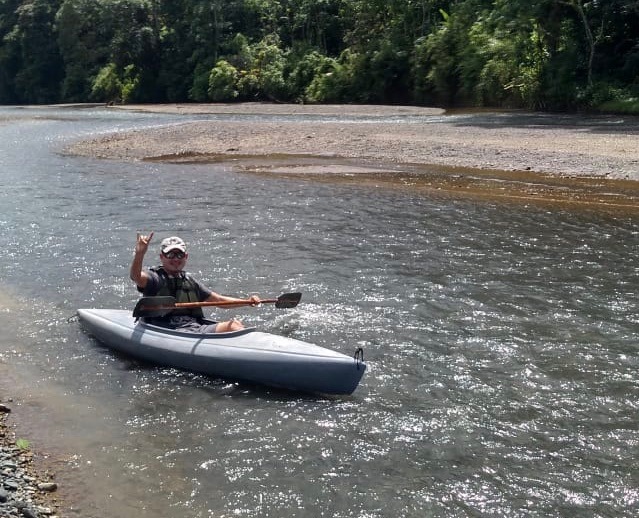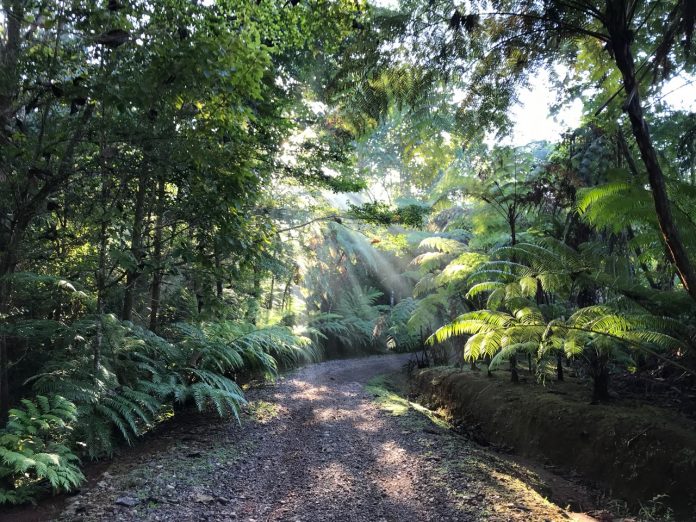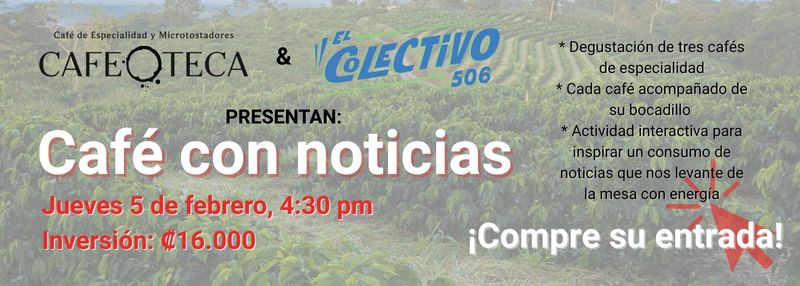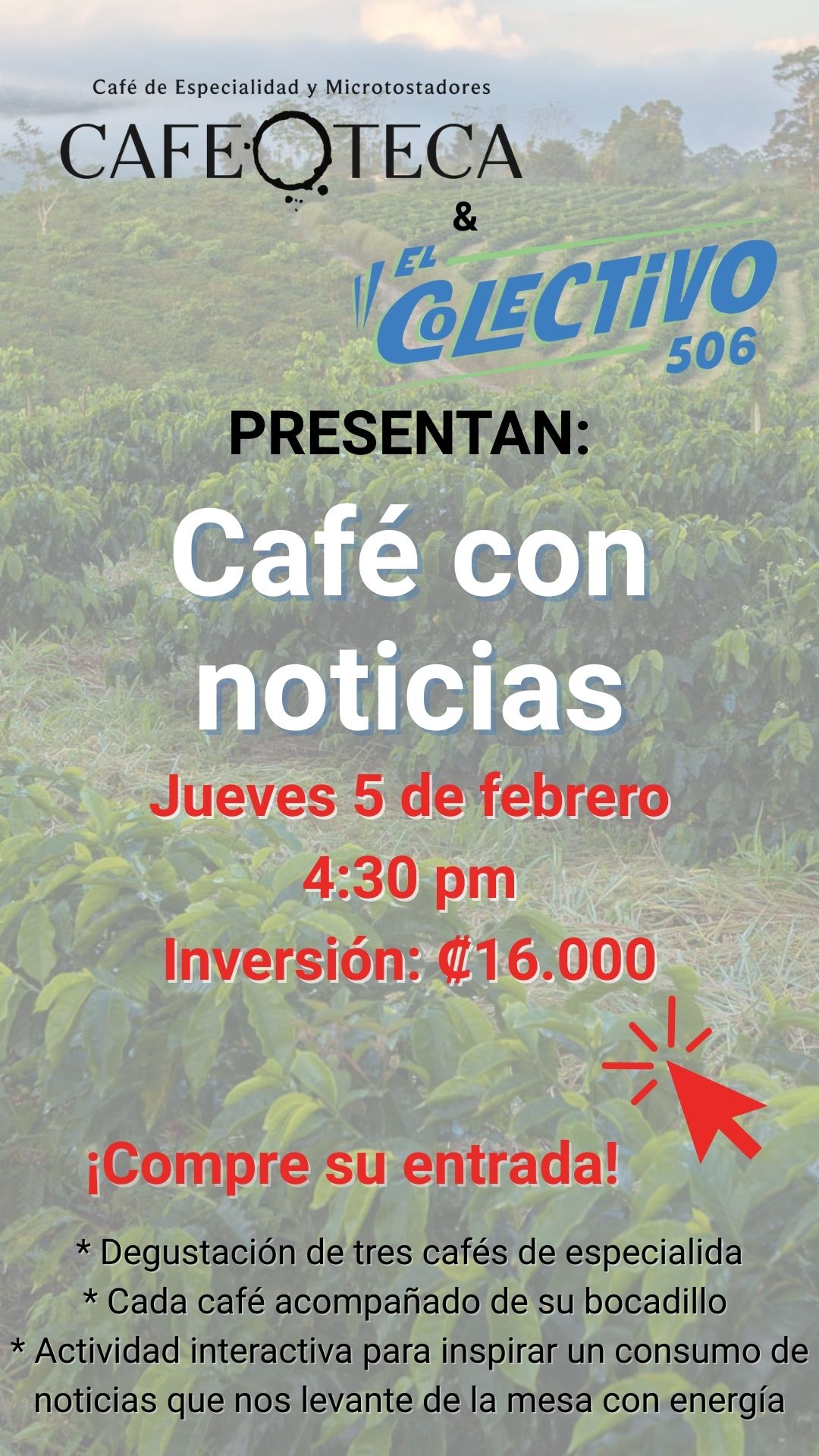Even when he was at home in Bolivia, his passport was always within reach, a journey always being planned: to forests, beaches, deserts, mountains and rivers, a constant search for something new. Then a virus stopped it all. He was caught mid-trip, like an insect in amber: ensconced in a jungle lodge in Costa Rica where, far from his family and friends, he would have nowhere left to travel but within himself.
Hugo Santa Cruz needed a refuge. Macaw Lodge needed watching over. So he watched. The multilingual chattering he’d grown used to on his travels was replaced by birdsong. Grounded in a life full of voyages, alone in a place usually full of visitors like him, he named and befriended the animals he saw again and again. Toño the coati, Elvia the heron, Alejandra the hummingbird who tapped on his window every morning, Luis the raccoon who glanced his way sometimes when he was working late at night. A collared forest falcon who, landing on his balcony one day, took his breath away. “A majestic presence, the king of the forest winds, right in front of me,” writes Hugo. “It was the greatest honor of all those months of solitude.”
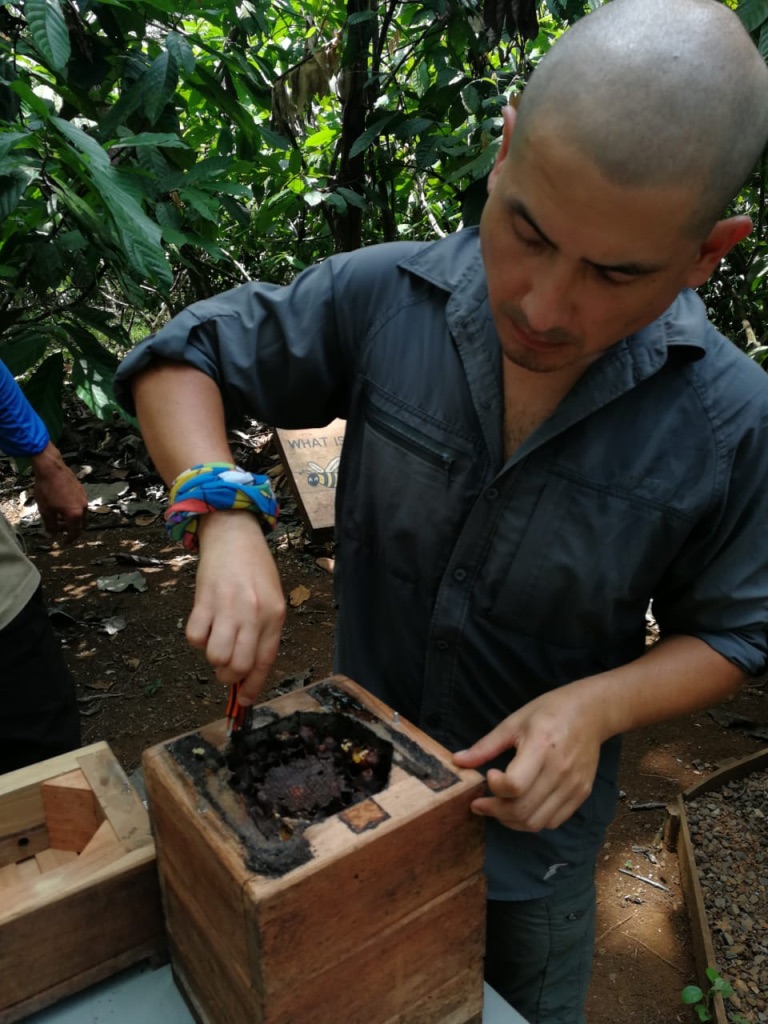
“Living in one of the most diverse places on the planet and seeing birds, mammals, serpents and much more, close up, is the best gift life has given me,” he writes. “But even though I was in a kind of Garden of Eden, sometimes it was a prison where I had to fight against my fears.” From this sanctuary, he watched many of the world’s systems kneel down before a microscopic threat. When would others see the pandemic as he did, face-to-face with the forest: a warning to humanity to change its ways? When would things go back to normal—and what did that word mean? When would he be able to hug his mother again?
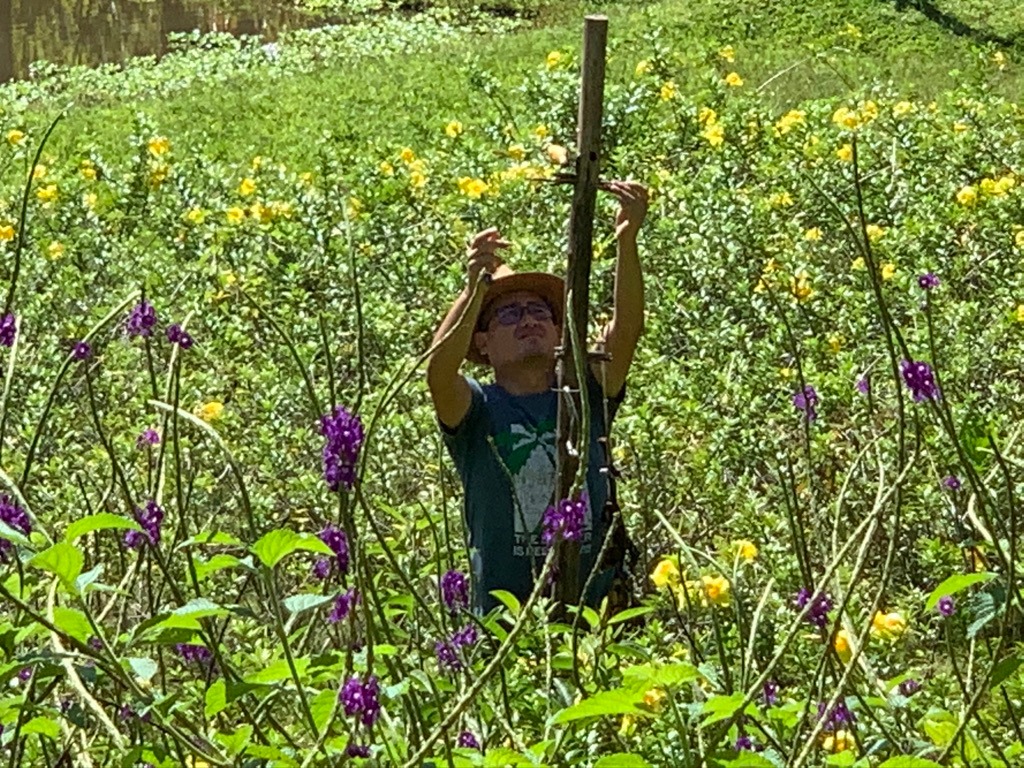
“Macaw was much more than a workplace for me,” says Hugo. “Macaw was the finest school, a sanctuary, a sacred place. Those weeks seemed infinite, sitting on the balcony of my cabin, trying to make sense of my existence and humanity itself. Learning as much about myself as I did about the forest… Today, Macaw stays in my thoughts day and night. It invades my dreams as if the forest were calling me. Lucky is anyone who walks this sacred ground.”
Text by Katherine Stanley Obando, based on the story of Hugo Santa Cruz, a Bolivian visitor who ended up taking care of Macaw Lodge in Turrubares, Costa Rica, for nearly a year because of the COVID-19 pandemic. Read more about Macaw Lodge here. Our weekly Media Naranja series captures stories of love and affection with a Costa Rican twist. During our May edition, “Costa Rica Inside Out,” our columns are being co-created with pilot members of our rural tourism project, Directory 506.
